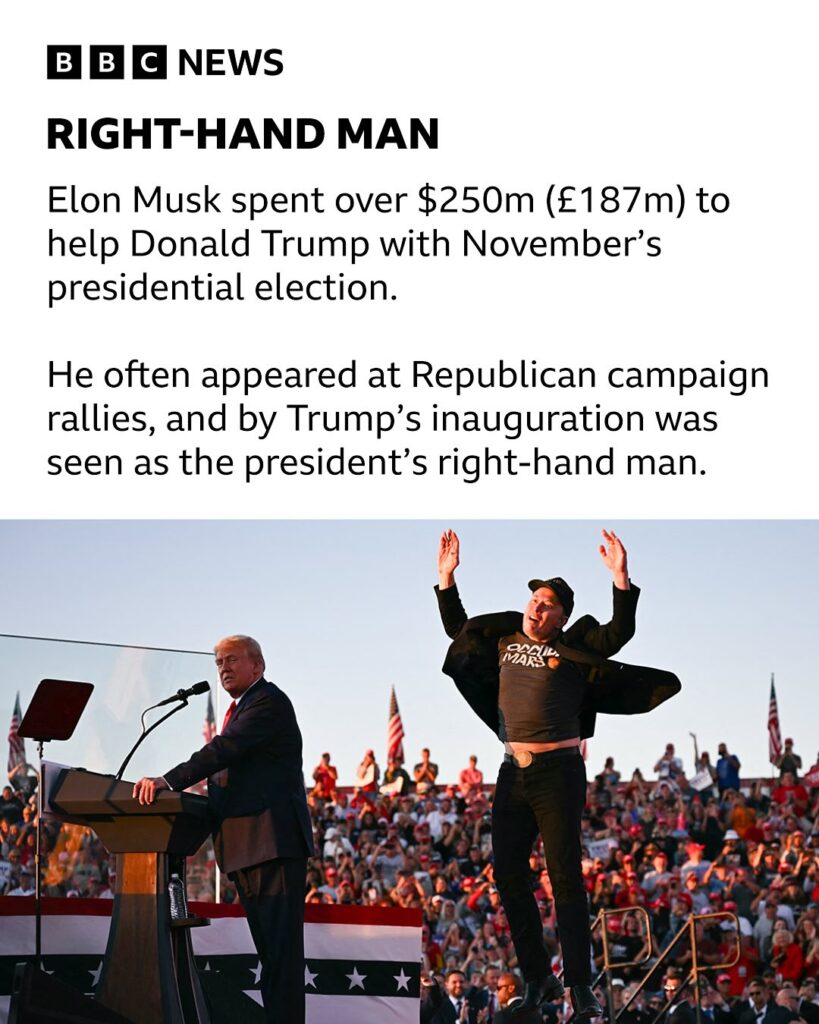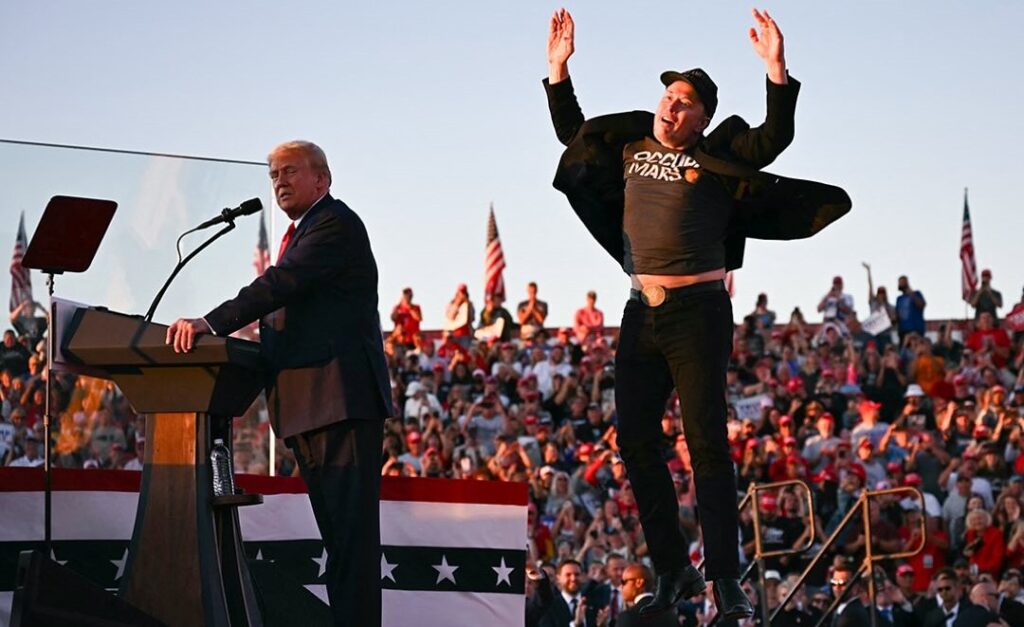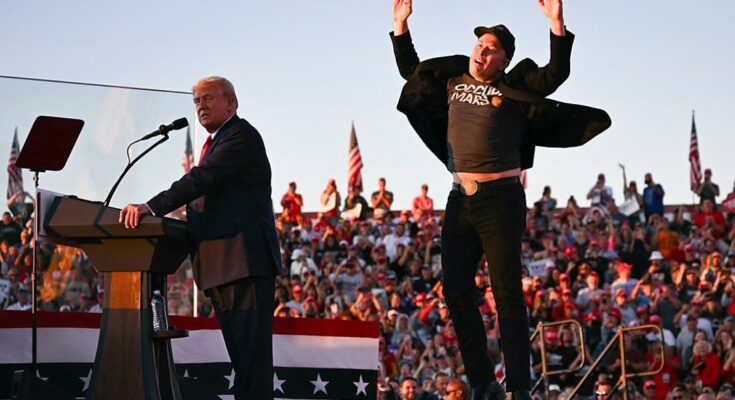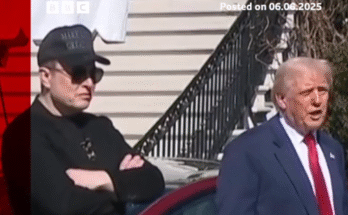
In the realm of politics and power, unlikely partnerships sometimes form under extraordinary circumstances. One such alliance reportedly began last July when Elon Musk, the world’s richest entrepreneur and CEO of Tesla and SpaceX, publicly endorsed former US President Donald Trump following a shocking assassination attempt in Pennsylvania. This endorsement was more than just a statement of support—it marked the beginning of a high-stakes partnership that reportedly involved Musk funneling an astonishing $290 million (£213 million) into efforts to secure Trump’s return to the White House.
This alliance, merging Musk’s immense financial resources and technological influence with Trump’s political clout, represents a compelling intersection of wealth, power, and ambition. But what sparked this partnership? How did it unfold? And what might it mean for American politics and beyond?
The Assassination Attempt in Pennsylvania: A Turning Point
The reported assassination attempt on Donald Trump in Pennsylvania sent shockwaves through the political landscape. It was a dramatic and violent reminder of the intense divisions and volatility gripping the United States. In the wake of the attack, Trump’s profile surged, galvanizing his base and drawing renewed attention to his political comeback efforts.
Amid this turbulence, Elon Musk’s endorsement of Trump came as a surprise to many observers. Historically, Musk has maintained a somewhat independent stance, at times clashing with Trump’s policies, especially regarding climate change and environmental regulations. Yet, the assassination attempt appeared to serve as a catalyst for Musk to step into the political arena in a much more direct and forceful way.
Musk’s Strategic Calculus

Why would Musk back Trump so decisively after years of a more nuanced or even contentious relationship?
Experts suggest that Musk’s decision was influenced by several factors. First, Musk’s business interests often align with political stability and regulatory environments conducive to innovation and growth. Trump’s promises to streamline government and reduce regulatory hurdles likely appealed to Musk’s vision for expanding Tesla, SpaceX, and other ventures.
Second, the assassination attempt underscored the stakes of the current political moment—highlighting threats to democratic institutions and prompting Musk to weigh in as a defender of stability and order.
Third, Musk’s personal brand as a disruptor and outsider has some resonance with Trump’s anti-establishment appeal. Despite their differences, both men share a flair for challenging norms and commanding media attention.
The $290 Million Investment: What It Entails
The report that Musk channeled $290 million (£213 million) into Trump’s campaign efforts marks one of the most significant financial interventions by a private individual in recent political history.
Such an investment likely encompassed a wide array of campaign activities, including funding political advertisements, grassroots mobilization, digital outreach, and other key components of a modern election strategy.
Musk’s vast financial contribution also reflects the increasing role of billionaire funding in shaping American political outcomes. While campaign finance laws impose certain limits and transparency requirements, the infusion of private capital at this scale signals a powerful alignment of business interests and political objectives.
Political and Public Reactions

News of Musk’s endorsement and financial backing elicited mixed reactions across the political spectrum and among the public.
Trump supporters welcomed Musk’s involvement as a game-changer, bringing crucial resources and tech-savvy leadership to the campaign. They viewed Musk’s endorsement as a validation of Trump’s vision and an indication that influential figures outside traditional political circles were rallying to his cause.
Conversely, critics expressed concern about the outsized influence of wealthy individuals on democratic processes. Many questioned the implications of a billionaire wielding such power behind the scenes and debated the potential conflicts of interest arising from Musk’s dual roles as a business titan and political kingmaker.
Additionally, some commentators highlighted the contradictions in Musk’s endorsement, given his prior criticisms of Trump’s policies and behavior. This tension added complexity to public perceptions of the partnership.
Impact on Musk’s Business and Public Image

Musk’s deepening involvement in partisan politics carries risks and rewards for his businesses and personal brand.
On the one hand, backing Trump could facilitate favorable regulatory environments for Tesla, SpaceX, and other ventures, particularly if Trump returns to power. The promise of reduced bureaucratic red tape and policies supportive of American manufacturing aligns with Musk’s growth objectives.
On the other hand, overt political partisanship may alienate customers, investors, and employees who hold diverse political views. Musk’s companies operate in global markets and depend on broad support for their ambitious projects, from electric vehicles to Mars colonization.
Moreover, as Musk’s public image increasingly intertwines with political controversy, it could complicate his reputation as an innovator and disruptor, potentially overshadowing his technological achievements.
The Broader Context: Billionaires and Politics
The Musk-Trump partnership is emblematic of a broader trend: the increasing entanglement of billionaires in political campaigns and governance.
Across the globe, wealthy individuals are leveraging their financial resources to influence policy, shape electoral outcomes, and advance their agendas. This dynamic raises important questions about democracy, equity, and the balance of power.
In the U.S., campaign finance reforms and transparency remain contentious topics, as citizens grapple with the implications of vast sums of money flooding political processes.
Musk’s reported $290 million investment underscores the scale at which individual fortunes can impact national politics—fueling debates about the role of money in democracy and the need for checks and balances.
What Lies Ahead?
As the 2024 election cycle heats up, the Musk-Trump partnership will undoubtedly attract continued scrutiny and analysis.
Observers will watch closely to see how Musk’s financial backing influences Trump’s campaign strategy, messaging, and voter outreach.
The alliance also invites questions about the future relationship between technology and politics, especially as entrepreneurs like Musk take more active roles in shaping governance.
Whether this partnership leads to electoral success or further polarizes the political landscape, it marks a significant moment in the intersection of wealth, innovation, and power.



